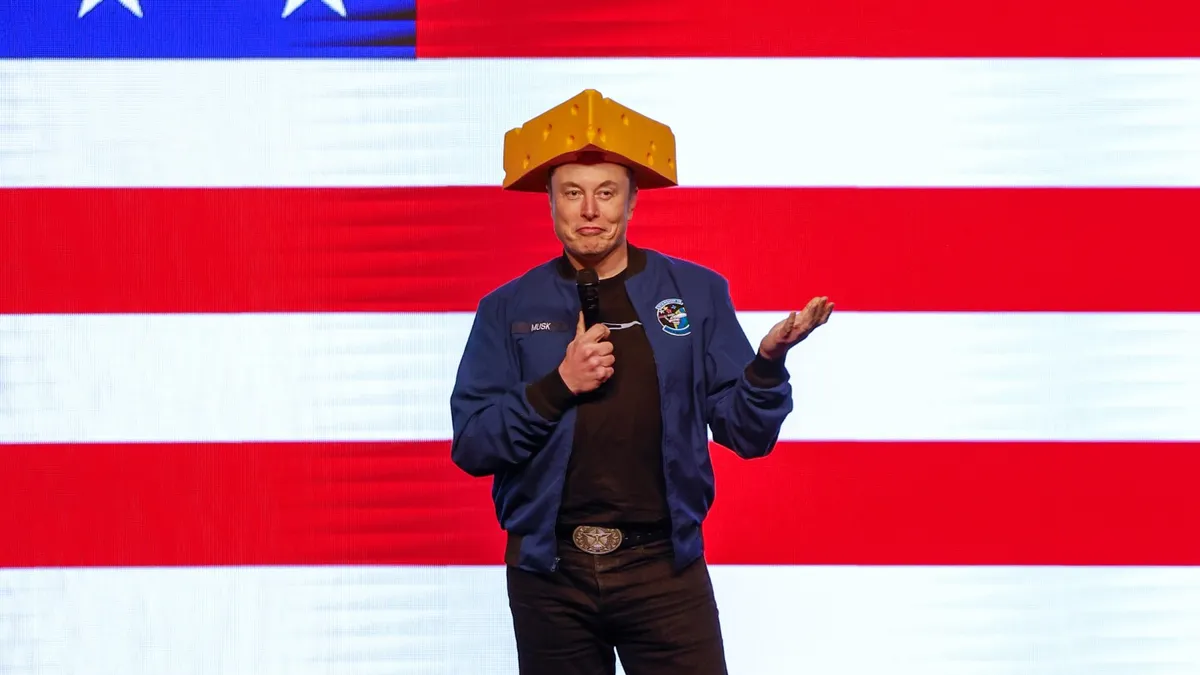
In a pivotal election for the Wisconsin Supreme Court, Judge Susan Crawford successfully maintained the narrow liberal majority by defeating conservative candidate Brad Schimel. However, the real loser in this high-stakes race may very well be billionaire entrepreneur Elon Musk. Musk, along with his affiliated organizations, invested a staggering $21 million into what is typically a low-profile judicial contest, including payments of $1 million each to three individuals for signing a petition aimed at boosting voter turnout in this critical battleground state.
This election served as the first significant test of Musk's political clout, particularly following his increased prominence during the Trump administration. His chaotic cost-cutting initiatives have led to substantial changes within federal agencies. The campaign saw Democrats, including Crawford, focusing their arguments on Musk's financial involvement, suggesting that he was attempting to “buy” the election. This resulted in what has now become the costliest judicial race in U.S. history.
In her victory speech, Crawford declared, “Today Wisconsinites fended off an unprecedented attack on our democracy, our fair elections, and our Supreme Court.” She emphasized that justice should not have a price tag, asserting that the courts cannot be for sale.
Endorsed by former President Donald Trump, Schimel's campaign transformed into a proxy battle over pressing national political issues. The Wisconsin Supreme Court holds significant power over cases involving voting rights and redistricting—issues that will likely be front and center during the upcoming midterm elections and the 2028 presidential race. Musk’s involvement amplified the stakes, with him stating, “A seemingly small election could determine the fate of Western civilization.” This remark was made in a last-minute appeal to voters via his social media platform, X.
Musk's super PAC, America PAC, reportedly allocated at least $6 million to vendors who organized door-to-door canvassing efforts across Wisconsin. This strategy mirrored the tactics used during the previous presidential race, where Musk also invested heavily in crucial battleground states. Despite these efforts, the results were unfavorable for Musk and his chosen candidate, Schimel, who was trailing by four percentage points as of late Tuesday night.
Interestingly, Crawford's margins were notably stronger in areas where America PAC had campaigned, including Sauk County, which she won by ten points despite Trump having a narrow victory there in the previous election. In Brown County, home to Green Bay, Crawford also triumphed over Schimel, further indicating a shift in voter sentiment.
After the election results, Musk took to X to voice his thoughts, suggesting that the left was corrupting the judiciary. He seemed to find some solace in voters’ support for elevating the state’s photo ID requirement from state law to a constitutional amendment. His involvement in the race drew criticism from various political figures, including Jon Favreau, a former speechwriter for Barack Obama, who quipped, “Please send @elonmusk to all the close races!” Meanwhile, Illinois Governor J.B. Pritzker remarked, “Elon Musk is not good at this.”
Voter sentiments were evidently influenced by Musk’s financial involvement. Kenneth Gifford, a 22-year-old college student from Milwaukee, expressed his concerns, stating, “It feels like Elon Musk is trying to buy votes.” Conversely, Jim Seeger, a retired communications professional, admitted that he voted for Schimel but was disappointed in the financial implications overshadowing the election process. He remarked, “I think it’s a shame that we have to spend this much money, especially on a judicial race.”
Wisconsin’s Democratic Attorney General, Josh Kaul, attempted to prevent Musk from making payments to petition signers opposing “activist judges,” but the state Supreme Court declined to rule on the case due to a technicality. Musk entered the race shortly after Trump’s inauguration, and Republicans were initially pessimistic about their chances of securing the seat, especially after losing a long-standing conservative majority on the state high court in 2023.
In conclusion, Musk’s extensive financial backing and strategic campaigning did not yield the desired results in the Wisconsin Supreme Court race. The election highlighted the growing influence of money in politics, particularly in judicial contests, prompting both sides to reflect on the implications of such financial involvement in shaping the future of democracy.